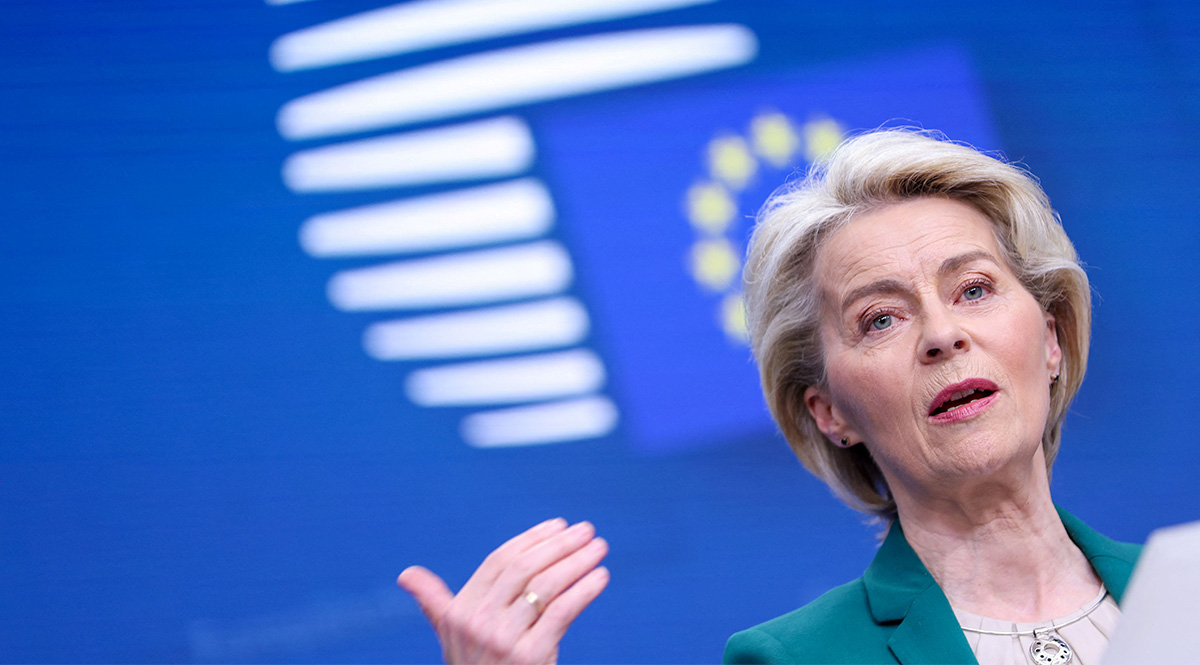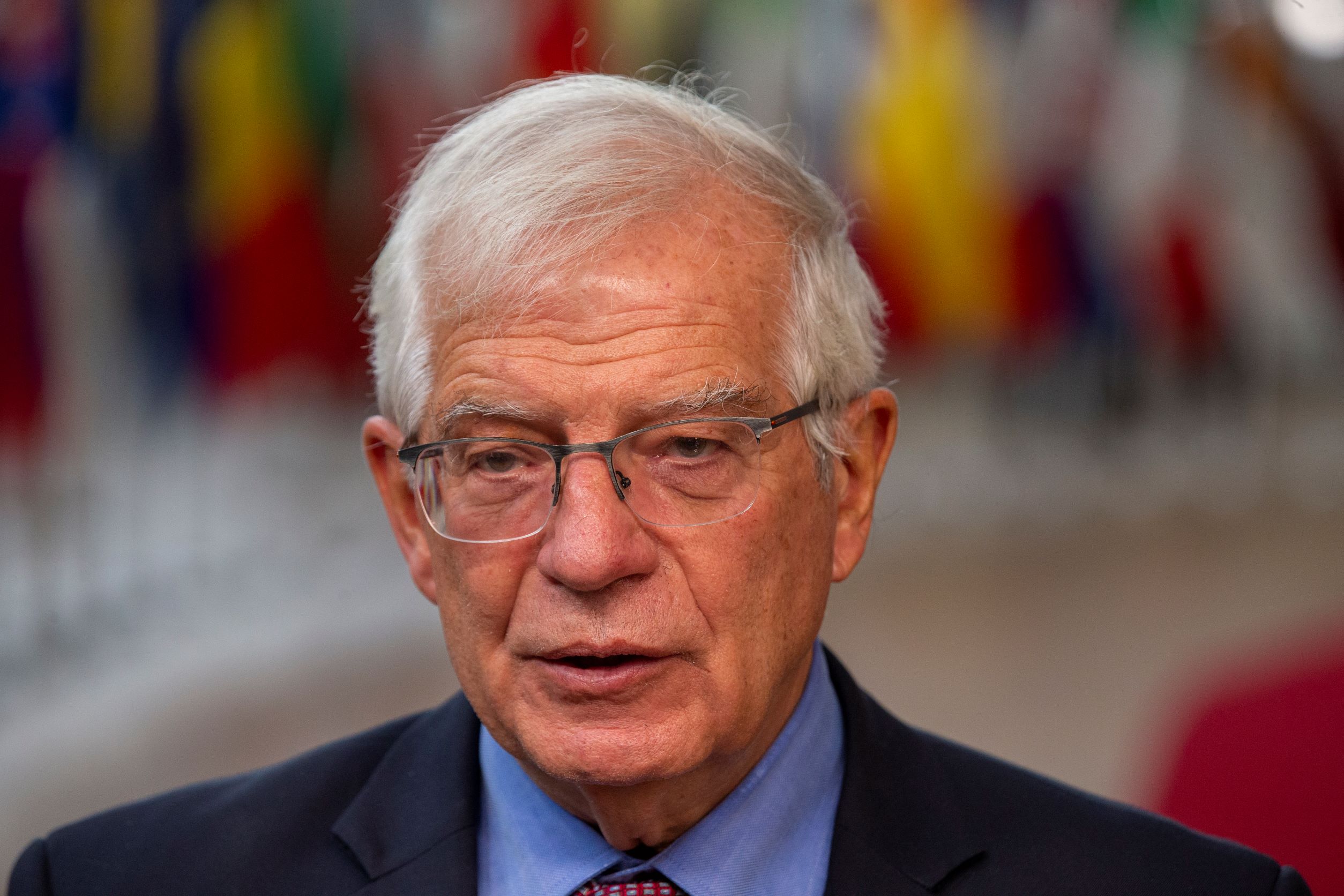European Commission Proposes EU Reform Ahead of Enlargement
The European Commission (EC) has presented proposals for reforming the European Union (EU) to prepare it for further enlargement. The most important changes may concern the accession process itself, individual EU policies, and the functioning of EU institutions. The Commission’s position is conservative and formulated in general terms. The most controversial point may be the demand for further pre-accession opening of the EU common market for candidates, as it may fear that the consequences could be a delayed or even halted process of joining the EU.
 Johanna Geron / Reuters / Forum
Johanna Geron / Reuters / Forum
During the last year of the ninth European Parliament (EP), important proposals for EU institutional reforms emerged. Last September, an expert report commissioned by the French and German governments was presented, and in November the EP passed a resolution on the subject. In March, the EC joined the discussion by publishing a Communication containing its ideas for changes to the functioning of the Union.
EU Enlargement
The Commission document states that the enlargement of the Union to include the Western Balkans, Ukraine, Georgia, and Moldova is in its strategic interest. It argues that enlargement will increase the EU’s international importance, reduce its dependence on external actors, and strengthen the competitiveness and growth potential of the single market. The Commission opted against setting an indicative date for future enlargement, an idea put forward last year by, among others, European Council President Charles Michel. The EC argues that enlargement is merit-based and each country is assessed on the basis of concrete progress in a number of areas, hence it is impossible to set a timetable for the process in advance.
Candidate countries are subject to a process of gradual integration and can already participate in some areas of the Union’s activities, such as the free circulation of certain goods. In its reform proposal, the EC calls for the participation of candidate countries in the EU market to be extended. According to the Commission, pre-accession access to the common market will allow the candidates to better integrate into European supply chains, so to this end, it proposes strategic partnerships in areas of mutual interest, such as raw materials, batteries, and tourism. However, the document does not give a clear answer as to what extent the common market would be opened up to the candidate countries and what kind of obligations would be imposed on them as a result. Current problems relating to, for example, Ukrainian agri-food exports, show how much disagreement there is among some Member States over such access.
Changes to EU Policies
Unlike the EP, which, in its proposal for institutional change, advocated a broadening of the Union’s competences (e.g., the recognition of environmental issues as an exclusive competence of the Union), the Commission is not proposing significant changes on this issue. However, in line with the pre-accession review of EU policies announced by the EC president in her State of the Union Address, the document identifies areas that will be particularly important in the EU’s interaction with candidate countries—transport, climate, agricultural, social, economic, and security policies.
In terms of climate policy, a major challenge is the dominant role of coal in electricity generation in some candidate countries, as well as the high level of greenhouse gas emissions. Admission to the Union will have a significant impact on the emissions trading scheme, and the Commission calls for an analysis of changes in this respect. It also recommends that the candidate countries become more involved in the Union’s common foreign policy activities, for example, by joining sanctions, implementing the provisions of the EU’s Strategic Compass, or participating in the Permanent Structured Cooperation in Defence and Security (PESCO) mechanism. It also draws attention to the EU’s limited budget, which already barely allows for the fulfilment of the obligations imposed on the Union. Increasing it in the future may be necessary not only because of enlargement but also because of the increasing number of challenges the Union has to face.
Institutional Reforms
Although the EC does not rule out modifying the treaties, it advocates above all changes within the legal system in operation. In its recommendations, it draws attention to the problems of effective decision-making in an enlarged group of states if the principle of unanimity is retained for decisions on taxation, foreign policy, and certain social matters. A similar diagnosis was included in the EP resolution, which called for the extension of qualified-majority voting (QMV) to further areas of Union action through treaty change. The Commission also recommends a wider use of QMV, but in order to introduce it, it advocates the use of so-called “passerelle clauses”, that is, the possibility—provided for by the Lisbon Treaty—to change the voting pattern in selected areas from unanimity to QMV (such a change must, however, be adopted unanimously). The Commission notes that it has already made proposals based on this mechanism in 2018 and 2019 on foreign, fiscal, social, and energy/climate policy. However, these have not been taken up by the Member States. However, the EC recognises the problem that a country may be outvoted on issues of great importance to it. In order to mitigate such risk, it advocates the introduction of a vital interests clause, the invocation of which would result in the need to continue discussions until a satisfactory solution is reached or the issue is referred to the European Council for consideration.
In addition, the EC points to the possibility of integration at different speeds, and states that this is already the case in use in, for example, the enhanced cooperation mechanism. However, in doing so, it emphasises that for such differentiation to work well, the key policies and principles and values of the Union should remain common to all members of the Community. This can be interpreted as opposition to diverging too far in this respect, such as in the model of differentiated integration proposed in the expert report commissioned by the French and German governments.
Conclusions and Perspectives
Among the ideas proposed by the EC, deepening the integration of candidate countries into the EU’s internal market is key, but the proposal is not concretised. In addition, the Commission document focuses on areas that are uncontroversial and of minor importance in EU-candidates relations (mainly due to the low volume in economic trade). Problematic issues such as agri-food exports to the Union are either not addressed or proposals to address them are to emerge in the indefinite future. This approach is due, among other things, to the EU’s institutional cycle now coming to an end (the June elections will select a new EP and EC). The current Commission does not have the legitimacy to propose far-reaching changes in such an important area, and additionally it does not want to stir up controversy that could make it difficult for its president, Ursula von der Leyen, to seek another term in office. However, should she be re-elected, which, in the current political situation, is highly probable, these proposals are likely to be an important reference point in the enlargement discussion.
The proposals for institutional changes have no chance of being implemented at this stage of work on EU reform, as a significant group of countries (including Czechia, Estonia, and Poland) are against the move to QMV. In addition, the proposal to mitigate the negative effects of such a change on Member States is a sham because, if the invocation of “vital interests” translates into the need to take a decision unanimously, this would mean the continuation of this mechanism in the areas to be reformed. If, on the other hand, the referral of a case to the European Council was to be merely mediated and did not involve the need for a unanimous decision, it would be de facto meaningless.
From Poland’s perspective, the gradual further admission of candidate countries to the EU common market would be beneficial, but an important condition in this context should be to ensure that such partial inclusion is not a substitute for full-fledged integration. In addition, it is in Poland’s interest to ensure that the current rules of fair competition (candidate countries should implement EU requirements) and mechanisms to protect EU producers from market distortions are respected.




.jpg)
(1).jpg)
